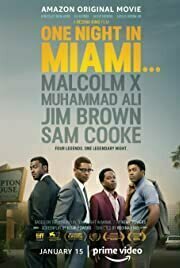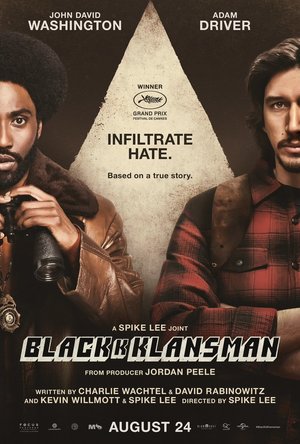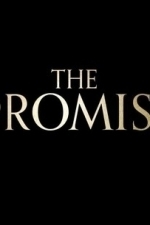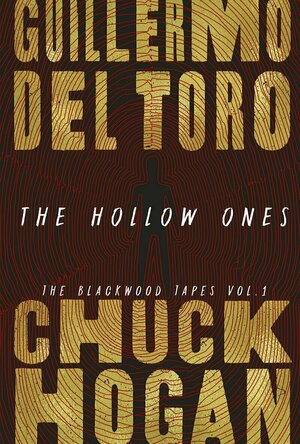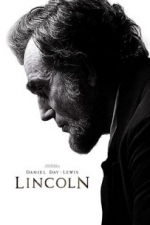Search
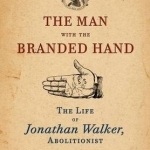
The Man with the Branded Hand: The Life of Jonathan Walker, Abolitionist
Book
Sailing around the Florida Keys in 1844, forty-five-year-old Jonathan Walker had a price on his...
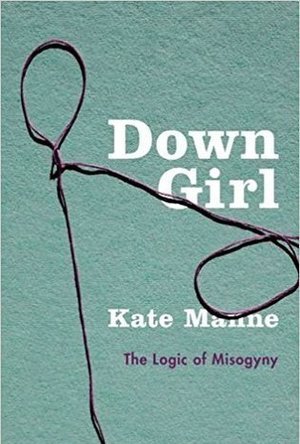
Down Girl: The Logic of Misogyny
Book
Misogyny is a hot topic, yet it's often misunderstood. What is misogyny, exactly? Who deserves to be...
BankofMarquis (1832 KP) rated One Night in Miami (2020) in Movies
Apr 15, 2021
Keeps the audience at arms length
The issue when adapting a stage play to the screen is that, often times, the subject matter and style of the script does not lend itself to being “opened up”, what is powerful when sitting in a theater with the actors performing the piece in front of you can often times be seen as “flat” when it jumps to the screen.
Such is the case with ONE NIGHT IN MIAMI the Major Motion Picture Directorial debut of Oscar Winning Actress Regina King and based on the stage play by Kemp Powers. This film/play fictionalizes the true story of 4 powerful African American legends that meet up in a hotel room, one night in Miami.
And…this film feels like 4 people sitting in a hotel room talking - and that’s the problem with it. What should be powerful dialogue (and, I’m sure, IS powerful when seen live on stage) just doesn’t translate well enough on the screen, so the film just sits there demanding we pay attention, while not inviting us in to do so.
Since this is a story about 4 people sitting around talking, the acting needs to take center stage and hold our attention and, quite frankly, it just does not. Eli Goree as Cassius Clay, Aldis Hodge as Jim Brown and Leslie Odom, Jr. as Sam Cook are all “fine” in their roles, but they don’t rise above the script and direction. Odom gets an Oscar nod for his turn in this film, but I have to think that, maybe, it is as much for his turn in HAMILTON as it is in this film.
Only Kingsley Ben-Adir as Malcolm X shows a spark and draws an emotional response in this film and that might not be fair to the other actors for he has the flashier role with the most speeches.
The Direction by King and the Script by Kemp Powers (based on his stage play) has some moments, but never draws the audience in. It keeps everyone at arms length and doesn’t touch the soul.
The subject matter in this film is an important one, and depicts a pivotal time in American History, but other films do a better job of driving that point home by inviting the audience into the conversation.
Letter Grade: B-
6 stars (out of 10) and you can take that to the Bank(ofMarquis)
Such is the case with ONE NIGHT IN MIAMI the Major Motion Picture Directorial debut of Oscar Winning Actress Regina King and based on the stage play by Kemp Powers. This film/play fictionalizes the true story of 4 powerful African American legends that meet up in a hotel room, one night in Miami.
And…this film feels like 4 people sitting in a hotel room talking - and that’s the problem with it. What should be powerful dialogue (and, I’m sure, IS powerful when seen live on stage) just doesn’t translate well enough on the screen, so the film just sits there demanding we pay attention, while not inviting us in to do so.
Since this is a story about 4 people sitting around talking, the acting needs to take center stage and hold our attention and, quite frankly, it just does not. Eli Goree as Cassius Clay, Aldis Hodge as Jim Brown and Leslie Odom, Jr. as Sam Cook are all “fine” in their roles, but they don’t rise above the script and direction. Odom gets an Oscar nod for his turn in this film, but I have to think that, maybe, it is as much for his turn in HAMILTON as it is in this film.
Only Kingsley Ben-Adir as Malcolm X shows a spark and draws an emotional response in this film and that might not be fair to the other actors for he has the flashier role with the most speeches.
The Direction by King and the Script by Kemp Powers (based on his stage play) has some moments, but never draws the audience in. It keeps everyone at arms length and doesn’t touch the soul.
The subject matter in this film is an important one, and depicts a pivotal time in American History, but other films do a better job of driving that point home by inviting the audience into the conversation.
Letter Grade: B-
6 stars (out of 10) and you can take that to the Bank(ofMarquis)
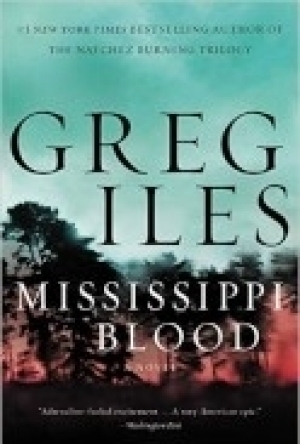
Mississippi Blood
Book
#1 New York Times Bestselling Author The endgame is at hand for Penn Cage, his family, and the...
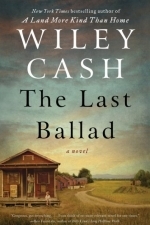
The Last Ballad
Book
The author of the celebrated bestseller A Land More Kind Than Home returns with this eagerly awaited...
Historical fiction
Kristy H (1252 KP) rated Small Great Things in Books
Feb 1, 2018
Ruth Jefferson is a successful labor and delivery nurse with over twenty years of experience. She has a nice home and a college-bound seventeen-year-old son, Edison. She also happens to be African American. When Ruth takes over for a colleague at shift change, she is simply doing a checkup on newborn baby boy Davis. But after his checkup, she's told Davis' parents don't want her touching their child. A post-it note in his file states that no African American staff should be touching the patient. Ruth is shocked-- and angry. The next day, when Davis has a medical emergency, Ruth is faced with a choice. Does she help the baby--defying the order of the parents and her supervisor? Ruth's decision leads her on a path that involves the police and being charged with a serious crime. Police come into her home, handcuffing her and her son. Her public defender, Kennedy McQuarrie, recommends that Ruth's defense not involve race: a lightning rod for juries, she says. But Ruth is angry and humiliated and wants to clear her name, at whatever the cost.
This is a touching and powerful novel. Told from the varying points of view of Ruth, Kennedy, and Turk--baby Davis' father-- it is a compelling look at how race and family history shapes the person we become. It is a poignant story at points: it is amazing what people can rationalize when it comes to hatred. I found the novel very fitting right now, with what's going on in the U.S. Honestly, it's very frightening at times and hits a little too close to home.
Picoult's characters are well-formed and dynamic, and you find yourself drawn into parts of each.
Turk, obviously, despite the loss of his child, is not a sympathetic character, but he is a complex one; his progression over the course of the novel is intriguing, and it's amazing how Picoult did not make him a one dimensional white supremacist. The book is extremely well-researched; both from the side of white supremacy, as well as racism and the medical aspects of Davis' case. Kennedy is likeable and her struggle with Ruth's case, as she realizes the depth of both the visible and latent racism her client faces on a daily basis, is real and relatable. I applaud Picoult for tackling such a difficult subject with such honesty. It's almost as if, through Kennedy, she's admitting exactly what she doesn't know. (I highly recommend reading Picoult's afterword, as well.)
For me, the hardest parts of the book was that it gets a little too poetic in the Jodi Picoult way (those who frequently read her novels will identify), with her waxing on about race and parents and being brought together, versus letting the story tell itself. At points the book just goes on and on a bit, versus getting to the story and the point. There are lots of little subplots that go off, detracting at times from the main story and frustrating the reader. And, of course, there are some weird twists and plot points in the typical Picoult style, though they don't seem to pack the punch of her older novels. It all wraps up a little too smoothly, though I have to confess I sort of enjoyed the ending. It may have been a bit trite, but I am often a sucker for such things.
Overall, I was impressed with how Picoult approached this novel, and I enjoyed the storyline for the most part (I was certainly invested), though it dawdled at times and ended a bit too easily. I'd rate this a strong 3.5 - 3.75 stars. Certainly worth reading, especially if you're a Picoult fan.
I received a copy of this novel from the publisher and Netgalley; is available everywhere as of 10/11/2016.
This is a touching and powerful novel. Told from the varying points of view of Ruth, Kennedy, and Turk--baby Davis' father-- it is a compelling look at how race and family history shapes the person we become. It is a poignant story at points: it is amazing what people can rationalize when it comes to hatred. I found the novel very fitting right now, with what's going on in the U.S. Honestly, it's very frightening at times and hits a little too close to home.
Picoult's characters are well-formed and dynamic, and you find yourself drawn into parts of each.
Turk, obviously, despite the loss of his child, is not a sympathetic character, but he is a complex one; his progression over the course of the novel is intriguing, and it's amazing how Picoult did not make him a one dimensional white supremacist. The book is extremely well-researched; both from the side of white supremacy, as well as racism and the medical aspects of Davis' case. Kennedy is likeable and her struggle with Ruth's case, as she realizes the depth of both the visible and latent racism her client faces on a daily basis, is real and relatable. I applaud Picoult for tackling such a difficult subject with such honesty. It's almost as if, through Kennedy, she's admitting exactly what she doesn't know. (I highly recommend reading Picoult's afterword, as well.)
For me, the hardest parts of the book was that it gets a little too poetic in the Jodi Picoult way (those who frequently read her novels will identify), with her waxing on about race and parents and being brought together, versus letting the story tell itself. At points the book just goes on and on a bit, versus getting to the story and the point. There are lots of little subplots that go off, detracting at times from the main story and frustrating the reader. And, of course, there are some weird twists and plot points in the typical Picoult style, though they don't seem to pack the punch of her older novels. It all wraps up a little too smoothly, though I have to confess I sort of enjoyed the ending. It may have been a bit trite, but I am often a sucker for such things.
Overall, I was impressed with how Picoult approached this novel, and I enjoyed the storyline for the most part (I was certainly invested), though it dawdled at times and ended a bit too easily. I'd rate this a strong 3.5 - 3.75 stars. Certainly worth reading, especially if you're a Picoult fan.
I received a copy of this novel from the publisher and Netgalley; is available everywhere as of 10/11/2016.
Gareth von Kallenbach (980 KP) rated BlacKkKlansman (2018) in Movies
Jul 8, 2019
From Director Spike Lee comes the incredible story of true American hero. In the early 1970s, Ron Stallworth (John David Washington) is the first African-American detective to serve in the Colorado Springs Police Department. Determined to make a name for himself, Stallworth bravely sets out on a dangerous mission: infiltrate and expose the Ku Klux Klan. The movie is based on Stallworth’s 2014 book Black Klansman, which details his experience. When it came time to meet the Klan members face-to-face, he utilized the help of a white undercover narcotics officer (Adam Driver in the movie), who posed as Stallworth for all in-person meetings with the Klan. Together, they team up to take down the extremist hate group as the organization aims to sanitize its violent rhetoric to appeal to the mainstream.
The film is very creative in the way that it presents history and allows the audience ride along with the action, suspense, and anxiety experience by Washington and Driver’s characters. The tone of the film, at times, is lighthearted in its approach but quickly draws you back in when faced with the reality that David Duke, and people like him walk among us dressing up their racism with non-threatening slogans, professional attire, and a clean-cut package.
The story displayed is a reminder that racism in America has a long history and is not isolated geographically to the south nor limited to Charlottesville or Charleston. The attitudes and actions committed by those who agree with the stances of white supremacy and white supremacist organizations have had a drastic impact on the development of American society. It has shaped and misshapen our attitudes towards one another. It continues to affect us today as we all bear witness to unbridled racism or the downplaying of racism with terms like “political correctness.” This film is timely in its approach and offers audiences a more full and expansive view of what combatting racism and racist attitudes and actions looks like.
Blackkklansman is a film that many have waited for when first hearing about the story of Ron Stallworth and they will not be disappointed with what they witness on screen. Sadly, the people who desperately need to see this movie may pass on it because they are uncomfortable with the subject matter and the reality that they themselves may be complicit in the continuance of racism and white supremacy. This film feels like a conversation being conducted directly between the director and audience. There are subtleties that allow the audience to think about the meaning and even parallel between the early 1970s and the current political environment, as well as, moments where there is no hiding of the message, no metaphor, no allegory. The filmmakers make it clear for those watching that many of us need to wake up almost as blatantly as Spike Lee promotes one of his earlier films, School Daze.
The only problem I found with the film was that I was left wanting more discussion. I wanted to see more of what Ron Stallworth dealt with as the only black detective in his department. If anything, this shows a real strength in the film by leaving audiences emotionally connected with the horrors that he faced, as well as, the way that those around him come to grips with the reality of the hatred and racial violence that had overlooked before because it did not have a direct effect on them. Blackkklansman is a film that will have audiences reflecting long after the credits have rolled. Hopefully the themes, metaphors, and overall message will help foster overdue and well-needed conversations about race, racism, prejudice, and violence. This film takes audiences out of their comfort zones and forces them to face some of the dark corners of America for two hours. Within that two hours, hopefully the people who don’t recognize racism and bigotry get a glimpse of the true horror and fear that marginalized communities feel on a daily basis so that they themselves can be agents of change and fight against racism.
The film is very creative in the way that it presents history and allows the audience ride along with the action, suspense, and anxiety experience by Washington and Driver’s characters. The tone of the film, at times, is lighthearted in its approach but quickly draws you back in when faced with the reality that David Duke, and people like him walk among us dressing up their racism with non-threatening slogans, professional attire, and a clean-cut package.
The story displayed is a reminder that racism in America has a long history and is not isolated geographically to the south nor limited to Charlottesville or Charleston. The attitudes and actions committed by those who agree with the stances of white supremacy and white supremacist organizations have had a drastic impact on the development of American society. It has shaped and misshapen our attitudes towards one another. It continues to affect us today as we all bear witness to unbridled racism or the downplaying of racism with terms like “political correctness.” This film is timely in its approach and offers audiences a more full and expansive view of what combatting racism and racist attitudes and actions looks like.
Blackkklansman is a film that many have waited for when first hearing about the story of Ron Stallworth and they will not be disappointed with what they witness on screen. Sadly, the people who desperately need to see this movie may pass on it because they are uncomfortable with the subject matter and the reality that they themselves may be complicit in the continuance of racism and white supremacy. This film feels like a conversation being conducted directly between the director and audience. There are subtleties that allow the audience to think about the meaning and even parallel between the early 1970s and the current political environment, as well as, moments where there is no hiding of the message, no metaphor, no allegory. The filmmakers make it clear for those watching that many of us need to wake up almost as blatantly as Spike Lee promotes one of his earlier films, School Daze.
The only problem I found with the film was that I was left wanting more discussion. I wanted to see more of what Ron Stallworth dealt with as the only black detective in his department. If anything, this shows a real strength in the film by leaving audiences emotionally connected with the horrors that he faced, as well as, the way that those around him come to grips with the reality of the hatred and racial violence that had overlooked before because it did not have a direct effect on them. Blackkklansman is a film that will have audiences reflecting long after the credits have rolled. Hopefully the themes, metaphors, and overall message will help foster overdue and well-needed conversations about race, racism, prejudice, and violence. This film takes audiences out of their comfort zones and forces them to face some of the dark corners of America for two hours. Within that two hours, hopefully the people who don’t recognize racism and bigotry get a glimpse of the true horror and fear that marginalized communities feel on a daily basis so that they themselves can be agents of change and fight against racism.
Gareth von Kallenbach (980 KP) rated The Promise (2017) in Movies
Jul 11, 2019
Roughly a year ago, I found myself in a heated exchange with a friend about full and appropriate representation of people and history in films. I discussed the merits of expanding the scope beyond films about slavery and segregation with respect to African-Americans and stories of despair for other marginalized groups. It is, for me, demeaning to a people’s contributions in society and trivializes experiences. After engaging in what seemed to be an hour, my friend focused more on what she had to say that considering what I was addressing. It proved true when she stated “Well… at least black people have movies about slavery! You should be happy. We don’t even have a movie about the Armenian Genocide!” I was shocked, momentarily. I had never stated that one group deserved more of the spotlight or one’s history is more important that another, just that we need to have appropriate representation and inclusion of stories. All of our stories should be told and shared, especially the ones that are not widely known, understood, or even having a place within social studies courses in our public schools.
I knew of the Armenian Genocide and had a general understanding about the atrocities committed by the Ottoman Empire. There are several international films that address what took place or have the Genocide as part of the story. Even My Big Fat Greek Wedding makes reference to how Greeks were brutalized by the Turks during the period. What we were missing, at least in the realm of American Cinema, was a representation for US audiences to witness the horrors that these people fell victim to and, for some, were able to survive. In The Promise, audiences will get a history lesson about man’s inhumanity to man.
When I first heard that this film was in production, I was interesting in how it would pan out. Would it be truthful, as painful as it may be? Would they overdo certain aspects? How much would they play with the truth? The filmmakers faced the same problems as those who brought forth Schindler’s List, The Pianist, and Life is Beautiful: How do you approach telling the story of genocide? How do you draw people in to a story that they may not be familiar with? Are people ready?
Summaries of the film that I read online made it seem as though this would be an Armenian version of Pearl Harbor in that this was a love story in the foreground of a film that features violence in the background. The summaries were misleading, maybe by design or maybe by mistake. The Promise, stars Oscar Isaac (Star Wars: The Force Awakens) as a young Armenia medical student, and Christian Bale (The Dark Knight) as a journalist for the associated press reporting on developments in the Ottoman Empire as war breaks out. The film whose description touts a love triangle in the midst of the Great War is far from what this films discusses and presents. There is a love story, however, it is not what the film is about or what is able to get the attention of the viewers.
The film reveals the deep held animosity of Armenians and other minority groups in the Ottoman Empire. It demonstrates the depth of mistrust and mistreatment of people who cast as “the other.” It is not simplistic in approach nor relying on over-the-top examples of violence in order for those watching to feel something. The development of events and characters permits the audience to connect with each of the characters, their families, their circumstances, and look for any moment in which they can escape the violence that is being committed to them. In no way does this film minimize what the victims went through. It doesn’t trivialize their experience in order to gain one’s attention.
The Promise satisfies the need for a discussion to emerge allowing for a truer examination of the genocide’s place in world history and within the framing of World War I. It presents a more representative picture of what people bore witness to or experienced themselves. With history, we are continuously searching for the truth and ensuring that history itself does not remained buried or ignored. This films serves the purpose in ensuring that more people are aware of not only the Armenian genocide, but all of the moving pieces that come with people fighting against an injustice or violence that is committed upon them because they are seen as less than or undesirable. It is my hope that with this film, studios see the necessity of bringing more stories of struggle, survival, and the will of humanity to overcome hardship and violence to audiences. The Promise although highly overdue, is essential, poignant, timely, and necessary in order for all of us to see that people are not forgotten.
I knew of the Armenian Genocide and had a general understanding about the atrocities committed by the Ottoman Empire. There are several international films that address what took place or have the Genocide as part of the story. Even My Big Fat Greek Wedding makes reference to how Greeks were brutalized by the Turks during the period. What we were missing, at least in the realm of American Cinema, was a representation for US audiences to witness the horrors that these people fell victim to and, for some, were able to survive. In The Promise, audiences will get a history lesson about man’s inhumanity to man.
When I first heard that this film was in production, I was interesting in how it would pan out. Would it be truthful, as painful as it may be? Would they overdo certain aspects? How much would they play with the truth? The filmmakers faced the same problems as those who brought forth Schindler’s List, The Pianist, and Life is Beautiful: How do you approach telling the story of genocide? How do you draw people in to a story that they may not be familiar with? Are people ready?
Summaries of the film that I read online made it seem as though this would be an Armenian version of Pearl Harbor in that this was a love story in the foreground of a film that features violence in the background. The summaries were misleading, maybe by design or maybe by mistake. The Promise, stars Oscar Isaac (Star Wars: The Force Awakens) as a young Armenia medical student, and Christian Bale (The Dark Knight) as a journalist for the associated press reporting on developments in the Ottoman Empire as war breaks out. The film whose description touts a love triangle in the midst of the Great War is far from what this films discusses and presents. There is a love story, however, it is not what the film is about or what is able to get the attention of the viewers.
The film reveals the deep held animosity of Armenians and other minority groups in the Ottoman Empire. It demonstrates the depth of mistrust and mistreatment of people who cast as “the other.” It is not simplistic in approach nor relying on over-the-top examples of violence in order for those watching to feel something. The development of events and characters permits the audience to connect with each of the characters, their families, their circumstances, and look for any moment in which they can escape the violence that is being committed to them. In no way does this film minimize what the victims went through. It doesn’t trivialize their experience in order to gain one’s attention.
The Promise satisfies the need for a discussion to emerge allowing for a truer examination of the genocide’s place in world history and within the framing of World War I. It presents a more representative picture of what people bore witness to or experienced themselves. With history, we are continuously searching for the truth and ensuring that history itself does not remained buried or ignored. This films serves the purpose in ensuring that more people are aware of not only the Armenian genocide, but all of the moving pieces that come with people fighting against an injustice or violence that is committed upon them because they are seen as less than or undesirable. It is my hope that with this film, studios see the necessity of bringing more stories of struggle, survival, and the will of humanity to overcome hardship and violence to audiences. The Promise although highly overdue, is essential, poignant, timely, and necessary in order for all of us to see that people are not forgotten.
Hadley (567 KP) rated The Hollow Ones: the Blackwood Tapes Vol. 1 in Books
Sep 9, 2020
Paranormal and occult (1 more)
Great story
A filler character with potential (1 more)
Overly used details
[This is the ARC version - - - John Silence was renamed Hugo Blackwood in the final version]
I've grown up watching a lot of Guillermo Del Toro's movies. One of my favorites that he was the screenwriter for is Hellboy. Yet, I spent almost four months at the beginning of this year playing the video game Death Stranding, which features Del Toro as a main character. I bring the former and latter up because they rank very high on some of my favorite things list, and I believe that The Hollow Ones is one of the best books I have read in a long time. This is one of those few rare books which I wish I could live in as a lover of the paranormal/occult.
Odessa Hardwicke - - - an FBI greenhorn - - - is ordering dinner with her partner, Walt Leppo, when they get a phone call that someone is on a shooting rampage from an airplane. (Hardwicke looks up to Leppo as a father figure, and he sees her as a daughter) We learn that the two have been on a corruption case involving a politician's former deputy chief of staff- - - they suddenly realize that the airplane may be tied to this man, and he may also be the one going on the killing spree. The pair speed off to the deputy chief's home in fear that he may be going to kill his recently divorced wife, who was waiting to receive not only their huge house, but a nice lump sum of money.
When Hardwicke and Leppo get to the house, after stopping the deputy chief, Hardwicke suddenly finds herself holding a gun on her partner while he tries to murder a little girl. She has only two choices to make: a) kill her partner, and face the backlash of shooting an agent in the line-of-duty or b) let him kill the girl and possibly herself- - - Hardwicke chooses to shoot and kill Leppo. Immediately after this, she sees something like a heatwave leave Leppo's body and disappear. When other agents arrive to the crime scene, Hardwicke keeps this information to herself, wanting to know instead why her partner suddenly turned into a murderer. Pending an investigation, Hardwicke is put on desk duty, including errands that the Bureau doesn't want to deal with. Enter Agent Earl Solomon.
On order by the FBI, Hardwicke is sent to clean out an office used by a retired agent that was hospitalized for a stroke. She takes his things to the hospital (not knowing what to do with them), and while discussing her plight with him and revealing that she had seen a sort of heat vapor leave Leppo's body, Solomon quickly tells her to write a letter to a man named John Silence, and place it in a nearly invisible mailbox in the Wallstreet area of New York.
From this point on, the book really begins to take off, and the fact that the authors brought in the religion of Palo (the Mayombe branch) is fascinating for anyone interested in the occult. The buildup of the story is really enjoyable, too, especially when Hardwicke decides to write and deliver the letter.
Readers also get to see Solomon's story from years before when he was one of the first African Americans to be recruited into the FBI. We see Solomon being sent to Mississippi in 1962, where a number of lynchings of African Americans have occurred, but the FBI hasn't been called in until the last murder: a lynching of a white man. Solomon can't help but question if he was only brought on this case because he is African American. Ignoring the bigotry, Solomon does his job, and comes across a young boy who is possessed by some sort of demon. The boy tells Solomon to bring him Silence, a man who Solomon has never heard of.
John Silence is also an interesting character; a nearly 500-year-old occult detective. We also get to see flashbacks of his life in the 1500's, learning about his occupation as a barrister, and his first encounter with the paranormal- - - something that has plagued him since- - - as well as his teacher in the occult. In the chapters of today, Silence is a mysterious figure, and carries himself much like a modern day Sherlock Holmes. Even by the end of the book, readers are still left with questions over what Silence has been through in the last 500 years. He, having only met Solomon 58 years prior- - - the two have a huge history together. Proven by the fact of how many 'cases' Solomon has hidden in his private records room that the two have embarked on together.
The Hollow Ones is a very enjoyable book, but I could only give it 3 out of 5 stars. The rating is because the authors- - - Del Toro and Hogan- - - used so many details, like the make and model of a passing vehicle, that it would interrupt the flow of the story, being bogged down by it. One other problem that I had was with the character Laurena; she was a 'filler character' (a character that is brought in just to make something happen in the story), but she was written to be Hardwicke's best friend. This was highly unbelievable with the two times she showed up in the story.
I really, really hope that Del Toro and Hogan decide to make this a series, and that the rest of the books show us Solomon's and Silence's journeys together! I highly recommend this book to people who love the paranormal/occult crime books.
I've grown up watching a lot of Guillermo Del Toro's movies. One of my favorites that he was the screenwriter for is Hellboy. Yet, I spent almost four months at the beginning of this year playing the video game Death Stranding, which features Del Toro as a main character. I bring the former and latter up because they rank very high on some of my favorite things list, and I believe that The Hollow Ones is one of the best books I have read in a long time. This is one of those few rare books which I wish I could live in as a lover of the paranormal/occult.
Odessa Hardwicke - - - an FBI greenhorn - - - is ordering dinner with her partner, Walt Leppo, when they get a phone call that someone is on a shooting rampage from an airplane. (Hardwicke looks up to Leppo as a father figure, and he sees her as a daughter) We learn that the two have been on a corruption case involving a politician's former deputy chief of staff- - - they suddenly realize that the airplane may be tied to this man, and he may also be the one going on the killing spree. The pair speed off to the deputy chief's home in fear that he may be going to kill his recently divorced wife, who was waiting to receive not only their huge house, but a nice lump sum of money.
When Hardwicke and Leppo get to the house, after stopping the deputy chief, Hardwicke suddenly finds herself holding a gun on her partner while he tries to murder a little girl. She has only two choices to make: a) kill her partner, and face the backlash of shooting an agent in the line-of-duty or b) let him kill the girl and possibly herself- - - Hardwicke chooses to shoot and kill Leppo. Immediately after this, she sees something like a heatwave leave Leppo's body and disappear. When other agents arrive to the crime scene, Hardwicke keeps this information to herself, wanting to know instead why her partner suddenly turned into a murderer. Pending an investigation, Hardwicke is put on desk duty, including errands that the Bureau doesn't want to deal with. Enter Agent Earl Solomon.
On order by the FBI, Hardwicke is sent to clean out an office used by a retired agent that was hospitalized for a stroke. She takes his things to the hospital (not knowing what to do with them), and while discussing her plight with him and revealing that she had seen a sort of heat vapor leave Leppo's body, Solomon quickly tells her to write a letter to a man named John Silence, and place it in a nearly invisible mailbox in the Wallstreet area of New York.
From this point on, the book really begins to take off, and the fact that the authors brought in the religion of Palo (the Mayombe branch) is fascinating for anyone interested in the occult. The buildup of the story is really enjoyable, too, especially when Hardwicke decides to write and deliver the letter.
Readers also get to see Solomon's story from years before when he was one of the first African Americans to be recruited into the FBI. We see Solomon being sent to Mississippi in 1962, where a number of lynchings of African Americans have occurred, but the FBI hasn't been called in until the last murder: a lynching of a white man. Solomon can't help but question if he was only brought on this case because he is African American. Ignoring the bigotry, Solomon does his job, and comes across a young boy who is possessed by some sort of demon. The boy tells Solomon to bring him Silence, a man who Solomon has never heard of.
John Silence is also an interesting character; a nearly 500-year-old occult detective. We also get to see flashbacks of his life in the 1500's, learning about his occupation as a barrister, and his first encounter with the paranormal- - - something that has plagued him since- - - as well as his teacher in the occult. In the chapters of today, Silence is a mysterious figure, and carries himself much like a modern day Sherlock Holmes. Even by the end of the book, readers are still left with questions over what Silence has been through in the last 500 years. He, having only met Solomon 58 years prior- - - the two have a huge history together. Proven by the fact of how many 'cases' Solomon has hidden in his private records room that the two have embarked on together.
The Hollow Ones is a very enjoyable book, but I could only give it 3 out of 5 stars. The rating is because the authors- - - Del Toro and Hogan- - - used so many details, like the make and model of a passing vehicle, that it would interrupt the flow of the story, being bogged down by it. One other problem that I had was with the character Laurena; she was a 'filler character' (a character that is brought in just to make something happen in the story), but she was written to be Hardwicke's best friend. This was highly unbelievable with the two times she showed up in the story.
I really, really hope that Del Toro and Hogan decide to make this a series, and that the rest of the books show us Solomon's and Silence's journeys together! I highly recommend this book to people who love the paranormal/occult crime books.
Gareth von Kallenbach (980 KP) rated Lincoln (2012) in Movies
Aug 7, 2019
The history of this country is steeped in mystery and intrigue, but it’s fuzzy on the details. We cling to heroes of the past because we are jaded by the present. Lincoln, a new film from Steven Spielberg, comes to us at a time when there seems to be even more political strife than usual. (Or perhaps that’s just me getting older and actually paying attention.) Either way, I think this movie’s arrival on the silver screen is very timely, given the recent election.
Daniel Day Lewis, a man revered for his choice of films and roles, as well as his ability to portray characters with so much emotion and conviction, has done it once again. As the title character for this film, Lewis portrays one of the U.S.A’s greatest leaders and pioneers in a way that few other men could. Surrounded by some of the best actors in Hollywood (including Tommy Lee Jones), this star-studded film has a laundry list of very recognizable faces from all corners of Hollywood. The red carpet was clearly rolled out for this film.
The story starts amid the death and destruction of the American Civil War, an event that is both a fixed point of the story and a constant backdrop. Seeing the fighting and killing made me wonder how gritty this movie would get, but as it turns out, they kept the level of gore pretty low.
The film goes on to set the stage for the final footsteps into the southern theater that was the Civil War. In tandem, it follows the highly controversial 13th amendment, which was barely passed at the time due to racism and the belief that one color of human should be slave to another color. The absurdity of this notion is highlighted, but it’s also familiar in the way it parallels issues we face today: legalizing pot, gay marriage, prostitution, the right to bear arms, etc. Perhaps our grandchildren will watch a film in the future about these struggles, and regard it as we do a film about the Civil War. As I sat and watched this movie, I was nearly in tears at the thought of how African-Americans were once regarded as lesser beings. Will our grandchildren cry at the ridiculousness of our beliefs?
The cinematography was amazingly crisp. Many of the characters are introduced in such a way that they have a grand entrance through the mystique created by camera angles. I have to truly applaud Spielberg for what might be his best film yet. The camera work was immensely effective, relying heavily on the contrast between shadow and light. Coupled with richly detailed sets, it made everything staggeringly realistic, and absolutely convincing.
I will say this for Lincoln: I haven’t been so moved and taken aback by a period film in my life. This is a must see for everyone.
The dialog is highly political, and sometimes goes along at quite a clip; be prepared to miss a few things the first time around. However, watching it a second time surely won’t be a sin. The humor alone merits a second viewing. There are many good laughs to be had.
Lincoln is a work of art.
Daniel Day Lewis, a man revered for his choice of films and roles, as well as his ability to portray characters with so much emotion and conviction, has done it once again. As the title character for this film, Lewis portrays one of the U.S.A’s greatest leaders and pioneers in a way that few other men could. Surrounded by some of the best actors in Hollywood (including Tommy Lee Jones), this star-studded film has a laundry list of very recognizable faces from all corners of Hollywood. The red carpet was clearly rolled out for this film.
The story starts amid the death and destruction of the American Civil War, an event that is both a fixed point of the story and a constant backdrop. Seeing the fighting and killing made me wonder how gritty this movie would get, but as it turns out, they kept the level of gore pretty low.
The film goes on to set the stage for the final footsteps into the southern theater that was the Civil War. In tandem, it follows the highly controversial 13th amendment, which was barely passed at the time due to racism and the belief that one color of human should be slave to another color. The absurdity of this notion is highlighted, but it’s also familiar in the way it parallels issues we face today: legalizing pot, gay marriage, prostitution, the right to bear arms, etc. Perhaps our grandchildren will watch a film in the future about these struggles, and regard it as we do a film about the Civil War. As I sat and watched this movie, I was nearly in tears at the thought of how African-Americans were once regarded as lesser beings. Will our grandchildren cry at the ridiculousness of our beliefs?
The cinematography was amazingly crisp. Many of the characters are introduced in such a way that they have a grand entrance through the mystique created by camera angles. I have to truly applaud Spielberg for what might be his best film yet. The camera work was immensely effective, relying heavily on the contrast between shadow and light. Coupled with richly detailed sets, it made everything staggeringly realistic, and absolutely convincing.
I will say this for Lincoln: I haven’t been so moved and taken aback by a period film in my life. This is a must see for everyone.
The dialog is highly political, and sometimes goes along at quite a clip; be prepared to miss a few things the first time around. However, watching it a second time surely won’t be a sin. The humor alone merits a second viewing. There are many good laughs to be had.
Lincoln is a work of art.
